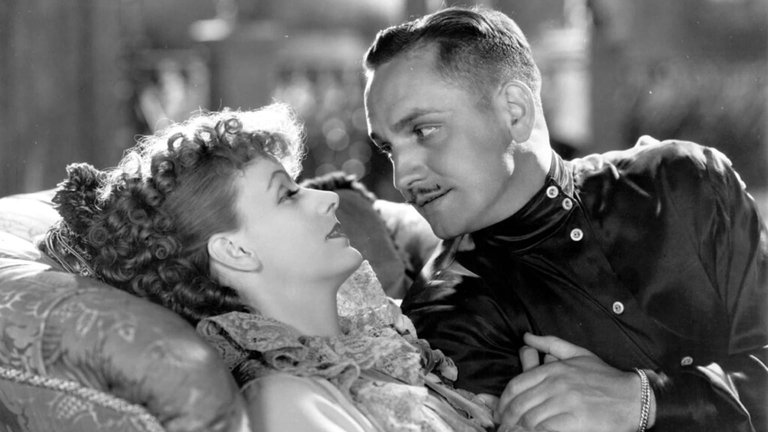Film Review: Anna Karenina (1935)

The 1935 film adaptation of Leo Tolstoy's classic novel Anna Karenina stands as a testament to the enduring legacy of Greta Garbo, one of the most iconic actresses in the history of cinema. Garbo's ability to seamlessly bridge the gap between the silent and sound film eras is a remarkable feat, as evidenced by her portrayal of the titular character in two vastly different, yet equally iconic, cinematic interpretations.
The first was the 1927 silent film Love, which served as Garbo's introduction to the role of Anna Karenina. The second, and the focus of this critical review, is the 1935 sound film Anna Karenina, directed by Clarence Brown. This later adaptation is much more faithful to Tolstoy's original novel, incorporating a more comprehensive plot and a wider array of supporting characters.
Despite the film's relatively short runtime of just over an hour and a half, Brown's direction manages to narrative's complexity and emotional depth. The use of sound, particularly the music composed by Herberth Stothart, adds a new layer of richness to the film's depiction of Czarist Russia, using the traditional Russian songs and Gypsy music at the beginning, polonaises, mazurkas at the ball scene and showing main characters watching Eugene Onegin, a famous Russian opera. The technical advisor, Andrei Tolstoy, the author's grand-nephew, helped ensure the authenticity of the film's setting and cultural elements, preserving the traditions that were on the verge of being lost forever under Soviet rule.
While Garbo's chemistry with her co-star, Fredric March, may not have been as palpable as her previous on-screen pairing with John Gilbert, both actors deliver solid performances. Garbo's portrayal of Anna Karenina remains the definitive cinematic interpretation, despite the efforts of many other acclaimed actresses who have taken on the role over the years. The supporting cast, including Maureen O'Sullivan as the romantic rival Kitty and Basil Rathbone as the cold and villainous Karenin, provide strong performances that complement Garbo's central role. However, the child actor Freddie Bartholomew, who plays Anna's son Sergei, has been criticized by some as somewhat annoying and distracting.
One of the film's most notable challenges was the need to conform to the strict censorship standards of the MPAA Production Code, which, among other things, prohibited the depiction of suicide. As a result, the tragic ending of Tolstoy's novel was adapted to fit the Hollywood mold, leading to a somewhat over-Hollywoodised conclusion.
Despite these creative constraints and despite mixed reviews, the 1935 Anna Karenina became a great commercial success, later earning the prestigious Mussolini Cup at the Venice Film Festival. Garbo's iconic performance makes this screen incarnation of Tolstoy’s heroine best known in the entire history of cinema.
.
RATING: 7/10 (+++)
Blog in Croatian https://draxblog.com
Blog in English https://draxreview.wordpress.com/
InLeo blog https://inleo.io/@drax.leo
Hiveonboard: https://hiveonboard.com?ref=drax
Rising Star game: https://www.risingstargame.com?referrer=drax
1Inch: https://1inch.exchange/#/r/0x83823d8CCB74F828148258BB4457642124b1328e
BTC donations: 1EWxiMiP6iiG9rger3NuUSd6HByaxQWafG
ETH donations: 0xB305F144323b99e6f8b1d66f5D7DE78B498C32A7
Posted using CineTV